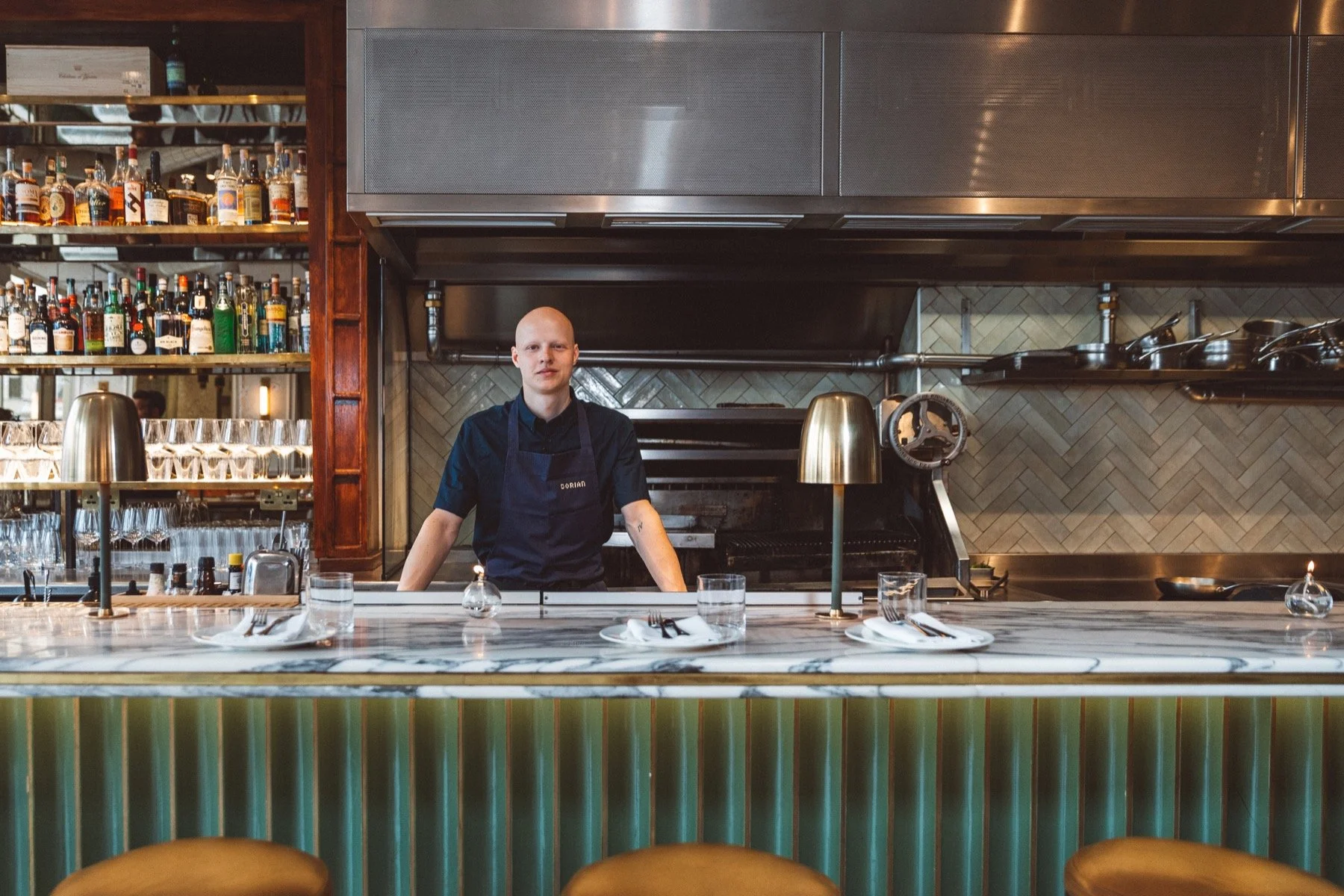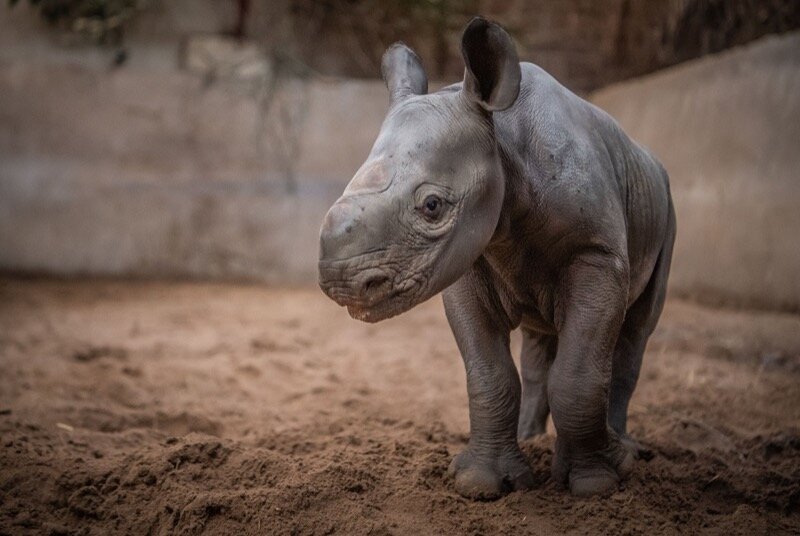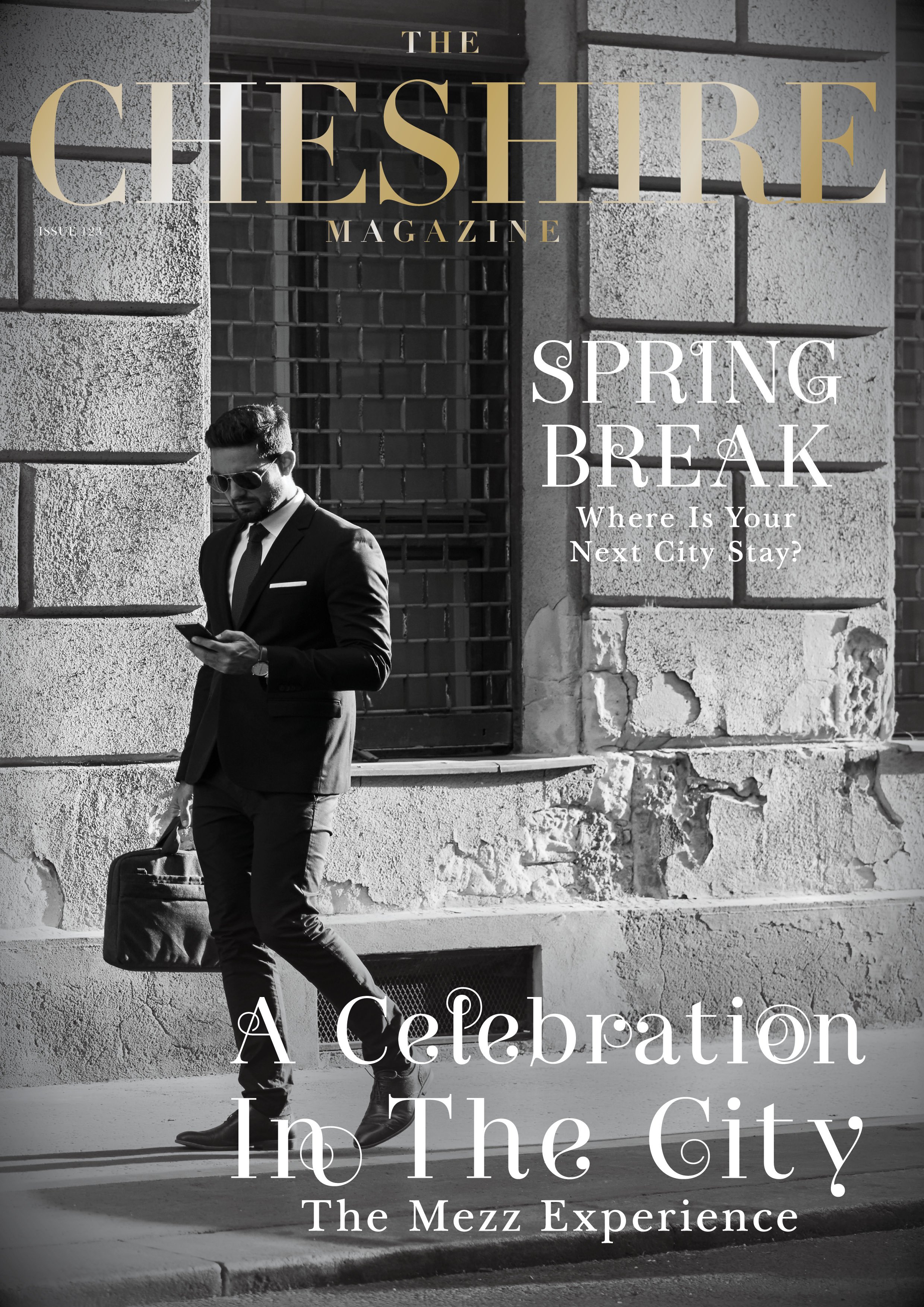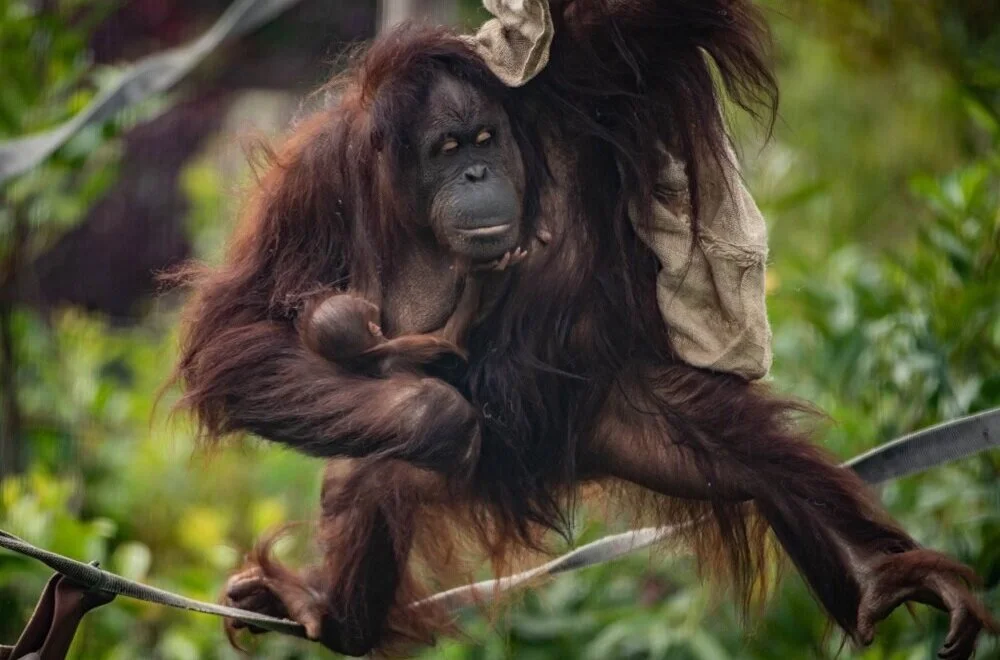Joy as Rare Baby Rhino Born at Chester Zoo
Zookeepers at Chester Zoo are celebrating the birth of a rare baby rhino
The female calf was safely delivered by new mum Ema Elsa following a 15-month-long pregnancy.
The birth was caught on the zoo’s CCTV cameras and shows the little one up on her feet and suckling from mum just 10 minutes later.
Now, the zoo has launched a poll on its Facebook page, inviting the public to help name the precious new arrival. Keepers have shortlisted the names Kasulu (a town in Tanzania), Koshi (meaning ‘to try’) and Kaari (meaning ‘young girl/young daughter’) for voters to choose from.
Conservationists at the zoo say the arrival of the calf – an eastern black rhino - will be ‘celebrated globally’ as fewer than 1000 now remain on the planet.
The population of eastern black rhinos in zoos across Europe is vital to the long-term future of the species, with several rhinos born as a result of the carefully coordinated breeding programme between European zoos having been introduced to Africa to boost wild populations. Most recently, in June 2019, experts at Chester Zoo spearheaded the transportation of a group of eastern black rhinos from Europe to Akagera National Park, Rwanda.
Andrew McKenzie, Team Manager of rhinos at the zoo, said:
“The birth of a critically endangered eastern black rhino is always very special. And to be able to watch on camera as a calf is born is an incredible privilege - with rhino numbers so, so low it, sadly, isn’t something that’s captured very often. Seeing the little one then get to her feet with a gentle nudge from mum; take her first tentative steps and suckle for the first time is then the icing on the cake. It really is heart-warming stuff.
“The whole team here is overjoyed. Mum and calf have bonded wonderfully and have been showing us all of the right signs. These rhinos have been pushed to the very edge of existence and every single addition to the European endangered species breeding programme is celebrated globally. It’s sadly no exaggeration to say that it’s entirely possible that we could lose them forever within our lifetime and the world’s most progressive zoos are very much part of the fight to prevent their extinction.”
The eastern black rhino is listed by the International Union for the Conservation of Nature (IUCN) as critically endangered. In the wild, they are now found only in Kenya, Tanzania and Rwanda.
Experts say the multibillion pound illegal wildlife trade is driving the species towards extinction - the surge in demand of rhino horn stemming from the Asian medicine market.
Andrew added:
“In the short term, Ema Elsa and her new baby will help to highlight the perilous position that this species is in and we hope they encourage more people to join the fight to prevent the extinction of these gentle giants. In the future, as we work to ensure more safe areas, we hope Ema and her offspring, like others before them born into the European breeding programme, are one day able to make the journey back to Africa.”
Conservation scientists at Chester Zoo, working out of the UK’s only zoo-based animal endocrine lab, have developed a technique to track black rhino oestrus cycles via hormone analysis of their dung – helping keepers to decide when best to introduce females to a mate to help optimise chances of a successful mating outcome, and subsequently confirm and track a pregnancy. This method is now being used in Kenya where rangers and vets, using a field lab set up with the help of experts from Chester, are deploying the technique to monitor wild rhino populations.
In addition to rhino breeding, Chester Zoo has, for many years, also supported conservation efforts to protect eastern black rhinos in Africa and continues to fund and provide expertise to numerous sanctuaries, partners and wildlife reserves and to train anti-poaching rangers.
Chester Zoo and the conservation-breeding of Eastern black rhinos
The new calf at Chester Zoo was born to mum Ema Elsa at around 5:30pm on Thursday 29 October
Chester Zoo has been successful in breeding a number of critically endangered eastern black rhinos and plays a vital part in the international breeding programme, helping to ensure an insurance population exists in the event that eastern black rhino become extinct in the wild
The latest arrival means that 12 eastern black rhino calves have now been born at the zoo in the last 20 years
The zoo is responsible for managing the European breeding programme for the eastern black rhino and last year reintroduced five rhinos from the European population to Rwanda, Africa.
Ground-breaking science by a team at Chester Zoo team has contributed to the zoo’s successful black rhino breeding programme. Zoo researchers have spent several years carefully monitoring the hormone levels of their resident female rhinos in a bid to discover the best time to introduce them to a potential partner. These hormone levels are monitored by analysing rhino dung. Tracking hormones gives an insight into what is going on inside the animals. It can help tell things like whether or not an animal is a seasonal breeder, whether it has reached puberty, whether it’s cycling on a regular basis or not and when the optimum time to introduce a male to a female is, as well as diagnose pregnancies and estimate when an animal will give birth
The zoo is currently home to nine critically endangered eastern black rhinos and two greater one-horned rhinos
Chester Zoo and rhino conservation in Africa
Eastern black rhinos are listed as critically endangered by the International Union for the conservation of Nature (IUCN)
The growing demand for rhino horn has led to a massive decline in rhino numbers, which have decreased by around 95% across Africa since the turn of the 20th century. 2014 was branded ‘the worst poaching year on record’ by leading conservationists after over 1,200 rhinos were hunted in South Africa alone - a 9,000% increase from 2007
Chester Zoo is fighting for the survival of eastern black rhino and has long supported conservation efforts in the wild to try and protect black rhinos and continues to fund, and provide expertise, to numerous partners in Africa
The Chester Zoo Black Rhino Programme started in 1999, in partnership with Save the Rhino, providing substantial financial support to Kenya Wildlife Service to enable the translocation of 20 black rhinos to wildlife reserves in the Tsavo region of Kenya
More recently the zoo has also provided support for rhino protection to its partners the Big Life Foundation in Chyulu Hills National Park in Kenya and the George Adamson Wildlife Preservation Trust in Mkomazi National Park in Tanzania
Hungry for more?
Read up on the latest news, delicious eats, travel treats and seasonal style trends in FEATURES, or browse a curated selection of our FEATURED PRODUCTS, meander through our guide to the finest things to do in Cheshire and beyond in WHATS ON or partake in our COMPETITIONS.
About The CHESHIRE Magazine
We are the definitive guide to luxury lifestyle in the North West. Latest news, delicious eats, travel treats and seasonal style trends. The Cheshire Magazine is the largest luxury lifestyle title for the North West of England, dropping directly through the letterboxes of VIP subscribers from the Wirral to Greater Manchester plus all the villages and towns in between and digitally available as a subscription in print and digital on issuu.com worldwide. We specialise in connecting luxury brands to likeminded consumers.
If you are interested on how you can partner with The CHESHIRE Magazine, read more about us. Or get in touch to find out more about marketing, featuring or partnering with the Cheshire Magazine in print or online.













